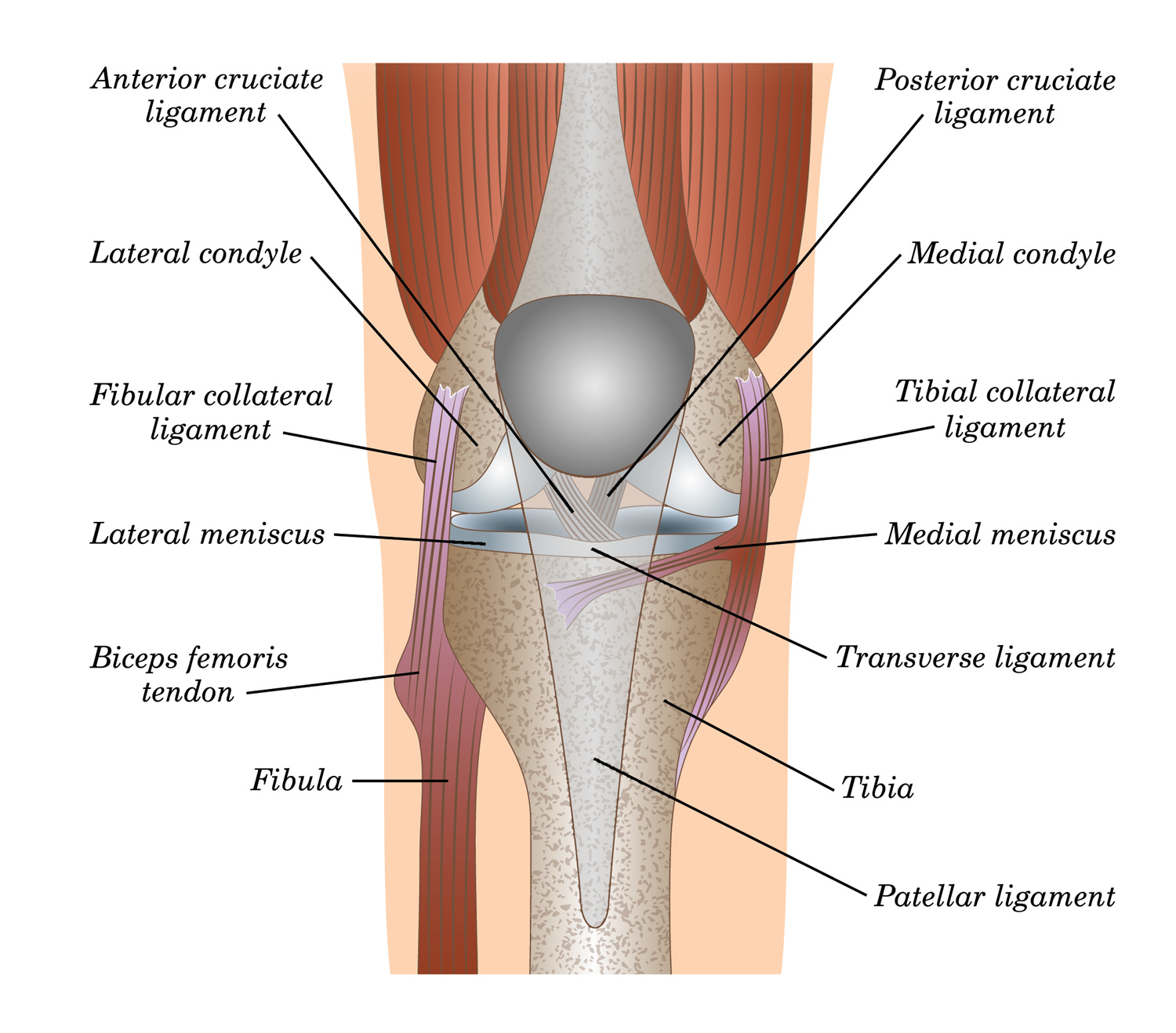Knee Pain
What might cause acute knee pain?
Acute damage to the knee is a common issue, as it’s a large joint taking a great deal of strain. Sports injuries, in particular, are frequently responsible, resulting in problems such as:
- Anterior cruciate ligament (ACL) sprains
- Medial collateral ligament (MCL) sprains
- Meniscus tears
- Posterior cruciate ligament (PCL) tears
- Patellar tendinitis
- Iliotibial band syndrome
- Dislocating or fracturing the knee can also cause extensive tissue damage and pain.
With expert treatment, these injuries should heal successfully. However, if the tissues don’t mend properly or there’s any misalignment in the joint, they can become a chronic pain problem.
What might cause chronic knee pain?
Chronic knee pain could be due to arthritis, which is a leading cause of joint pain. The most common form is osteoarthritis resulting from wear to the cartilage protecting the bones in your knees.
Rheumatoid arthritis, an inflammatory disease triggered by an immune system malfunction, is another possibility. There are around 100 other types of arthritis, too, many of which could affect your knees. Bursitis is also responsible for many pain issues, where the bursae (cushioning sacs of fluid in your joints) become irritated and get inflamed.

How is knee pain treated?
If you have an acute injury, then initially, you might need some form of immobilization to enable your knee to heal. Physical therapy helps rebuild strength in the joint and surrounding tissues and prevents atrophy of the connective tissues. Medication or hot and cold compresses might also be helpful. These treatments, plus wearing a brace or using orthotics to support your knee and ensure it’s correctly aligned, are helpful for chronic pain conditions as well.
If your pain continues despite these measures, Pacific Sports & Spine offers advanced treatment options such as:
Genicular Nerve Ablation (radiofrequency neurotomy): This procedure uses radio wave energy to heat the genicular nerves in your knee that transmit pain signals to your brain. Disrupting the nerve pathways could provide long-term relief from knee pain.
HYALGAN® injection (Trivisc?): Viscosupplementation using Hyaluronic acid, a substance that occurs naturally in your tissues and joints. It has lubricating properties that can ease arthritis pain.
Genicular Nerve Ablation: Genicular nerves control pain signals from the knee and ablation is a therapy that uses heat to stop the nerves in your knee from sending pain signals to your brain.
Genicular Nerve Peripheral Nerve Stimulation: A technique to stimulate the nerves around the knee to control the pain signal.
Dorsal Root Ganglion Stimulation: A technique to control the pain signal from the spinal nerve root to control the pain at the knee.
Percutaneous Tenotomy (Tenex): A minimally invasive procedure using ultrasonic energy to treat common tendon disorders of the knee.
Regenerative Medicine: Regenerative medicine techniques, like platelet-rich plasma (PRP), are used to boost natural tissue healing.
To ensure these treatments are safe and target the precise root of your knee pain, your provider uses imaging technology to guide needle placement.
The highly skilled team at Pacific Sports & Spine specializes in treating sports injuries and causes of acute and chronic knee pain. To benefit from their expertise, call our office at (541) 780-6654 to schedule a patient appointment.
